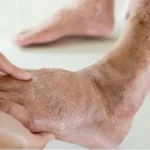
Understanding the Long-Term Effects of Radio Frequency Ablation
October 2, 2025
Recognizing Risk Factors for Deep Vein Thrombosis
October 2, 2025Back injuries can range from minor strains to severe conditions that limit mobility and cause chronic pain. While many cases improve with rest, therapy, or non-surgical treatments, some injuries require a more advanced approach. Knowing when orthopedic surgery becomes necessary is key to preventing long-term complications and restoring mobility. Here’s more information about circumstances where surgery may be recommended for back injuries:
Identifying Common Back Injuries
Back injuries encompass a wide range of conditions affecting the spine, muscles, ligaments, and nerves. Here are some common back injuries:
- Muscle strains: Occur when fibers are stretched or torn due to overuse or sudden movements. These injuries typically cause localized pain and stiffness that improve with rest and basic care.
- Ligament sprains: Happen when the tough bands connecting vertebrae become overstretched or damaged, resulting in pain and limited mobility.
- Disc problems: Represent more serious spinal injuries that may require advanced treatment.
- Spinal stenosis: Characterized by the narrowing of the space around the spinal cord, creating pressure on neural structures and causing discomfort.
- Fractures and severe spinal injuries: Result from trauma, falls, or underlying bone conditions. These injuries cause immediate, intense pain and may also lead to neurological symptoms.
Understanding these common types of back injuries can provide valuable insight into diagnosis and treatment.
Managing Spinal Injuries Without Surgery
Most back injuries respond well to conservative treatment approaches that focus on reducing pain and restoring function. Rest and activity modification allow injured tissues to heal while preventing further damage. Physical therapy plays a fundamental role in recovery by strengthening supporting muscles and improving flexibility. Therapists teach proper body mechanics and movement patterns that help prevent future injuries.
Medications provide pain relief and reduce inflammation during the healing process. Anti-inflammatory drugs help control swelling around injured tissues. Muscle relaxants may be helpful for reducing spasms that contribute to pain and stiffness. Injection therapies can target specific areas of inflammation or nerve irritation. Epidural steroid injections deliver medication directly to the affected area around the spinal cord. These treatments often provide significant pain relief, allowing for more effective participation in physical therapy.
Recognizing When Surgery Is Needed
Several indicators suggest that surgical intervention may be beneficial for treating spinal injuries:
- Persistent pain that does not improve after six to twelve weeks of conservative treatment may warrant surgical evaluation.
- Progressive neurological symptoms, such as numbness, tingling, or weakness in the arms or legs, indicate potential nerve damage that could become permanent without treatment.
- Loss of bladder or bowel control is a medical emergency requiring immediate surgical attention. This condition occurs when severe compression affects the bundle of nerves at the bottom of the spinal cord.
- Significant weakness in the legs that impacts your ability to walk or stand safely may necessitate surgical correction.
- Structural problems causing ongoing spinal instability often require surgical stabilization.
- Failure of conservative treatments to provide adequate pain relief or restore function may indicate surgery as the most effective option.
- Imaging studies showing severe disc herniation, significant spinal stenosis, or unstable fractures can help confirm the need for surgical intervention.
When these signs are present, evaluating the potential benefits of surgery with a specialist is key to promoting optimal outcomes.
Schedule Your Back Injury Evaluation
Understanding when orthopedic surgery becomes necessary for back injuries helps you make informed decisions about your treatment. While many spinal injuries heal with conservative care, some conditions require surgical intervention to prevent permanent damage and restore function. For persistent back pain or neurological symptoms, contact an orthopedic specialist near you to schedule your evaluation today.





